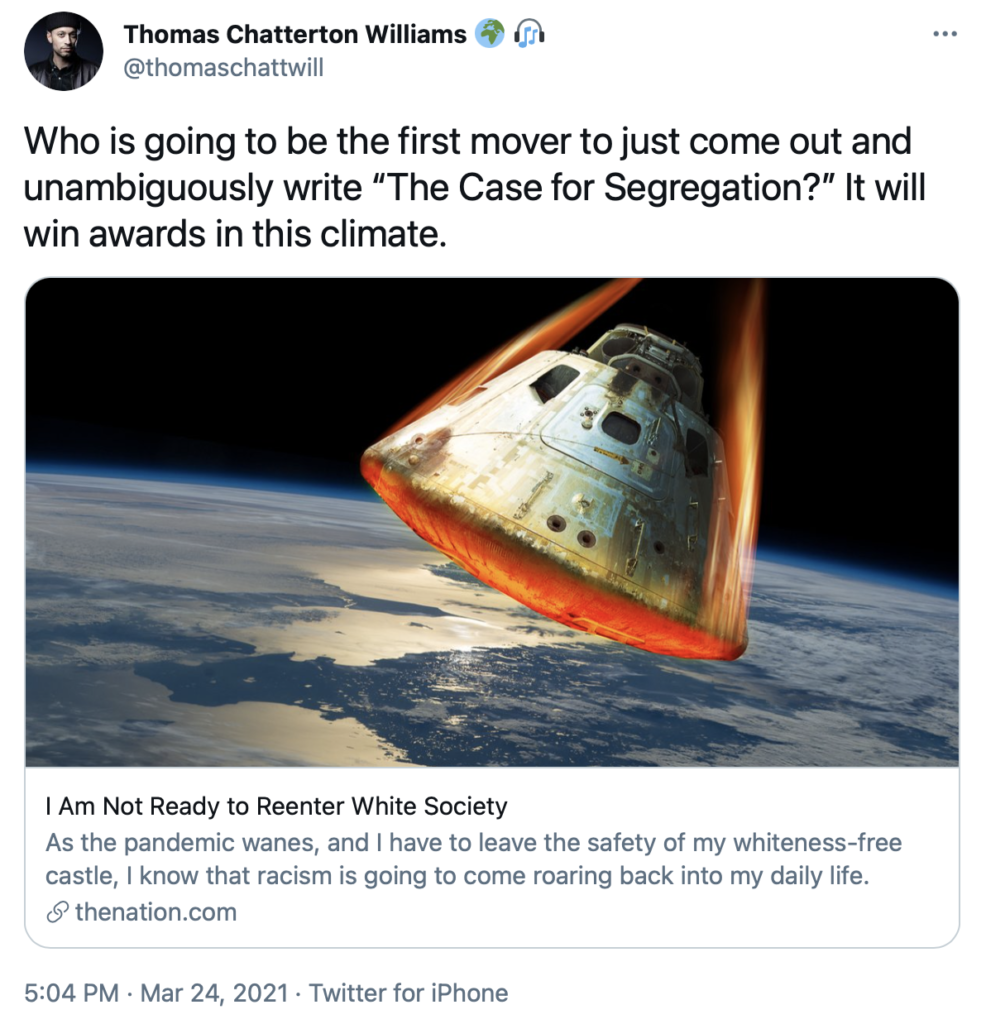Woke mobs are trying to deplatform and crucify of liberal writer Jesse Singal, not because he has written anything false, but because he has consistently written carefully researched articles on transgender issues. This includes articles describing the situations of some people who have undergone transgender surgery and hormones, but who have then begun to de-transition, people like Kiera Bell. This onslaught by the Woke mob has brought ad hominem attacks to a new level. What should you call people who refuse to engage with the facts, but would rather smear the writer with a torrent of salacious lies in an attempt to end his writing career? And what would you call it when that same mob even attempts to deplatform Singal from his self-publishing work on Substack?
Singal's battle with these sociopaths was analyzed in depth by Glenn Greenwald and Katie Herzog.
Here is an excerpt from Jonathan Kay's recent detailed article on Quillette describing this abysmal situation, "The Campaign of Lies Against Journalist Jesse Singal—And Why It Matters." It's a long read, but worth it.
One of the odd-seeming aspects of progressive cancel culture is that many of the figures targeted by mobs aren’t especially conservative in their views. Rather, the victims tend to be heterodox liberals who simply offer a dissenting opinion on one or more compartmentalized issues—since these liberal targets tend to operate in left-leaning professional and social milieus through which a mob can exercise leverage and demand concessions. There are numerous popular writers and broadcasters who promote deeply conservative themes without attracting any notice from cancel mobs—even as lifelong leftists within such niche genres as Young Adult fiction, LGBT theatre, and knitting-trade journalism are excommunicated on the basis of minor verbal infractions.
In some notable mobbings chronicled by Quillette, in fact, the targeted dissenter wasn’t even offering an opinion per se, but merely highlighting facts we’re all expected to ignore. James Damore wasn’t fired by Google because he gratuitously insulted women, but because he pointed out real differences between the sexes. In Canadian literary circles, Margaret Atwood became reviled among a progressive fringe when she argued (correctly, as it turns out) that falsely accused novelist Steven Galloway should have received due process before being tarred as a rapist. If you grovel enough, woke mobs might eventually forgive you for being wrong—but never for being right.
On the issue of gender, a particularly interesting case study centres on Jesse Singal, a mild-mannered and amiable (I’ve met him) New York-based journalist, book author, and podcaster whom Quillette readers may remember from his 2019 appearance on our own show. As early as 2016, well before the culture war over trans rights reached its crescendo, Singal authored a ground-breaking New York magazine exposé on the cynical takedown of eminent Toronto psychologist Dr. Kenneth Zucker (who was subsequently paid more than half a million dollars by his former employer, the Centre for Addiction and Mental Health, as part of a legal settlement relating to its part in that smear campaign). Two years later, Singal wrote an impeccably researched cover story for the Atlantic titled “When Children Say They’re Trans”—one of the most widely discussed features in the magazine’s recent history. In these articles, and on social media, Singal has dealt with the issue of gender dysphoria with care and sensitivity, documenting the challenges faced by those experiencing the condition. And while he is the furthest thing from an actual transphobe, he acknowledges the plain fact that some children who present as trans later “desist” to an identity that accords with their biological sex.
As anyone who follows this issue closely can guess, Singal’s measured approach doesn’t always sit well with progressive activist and journalistic subcultures . . .

